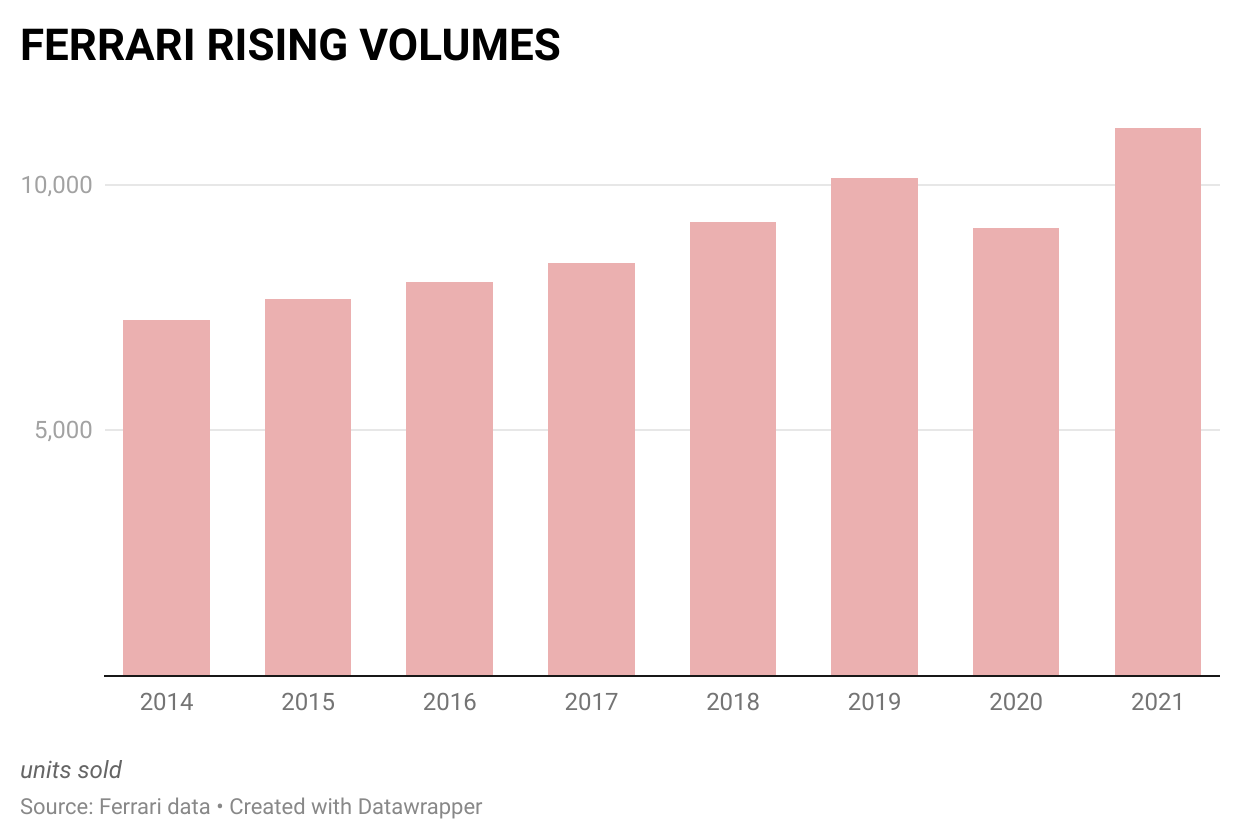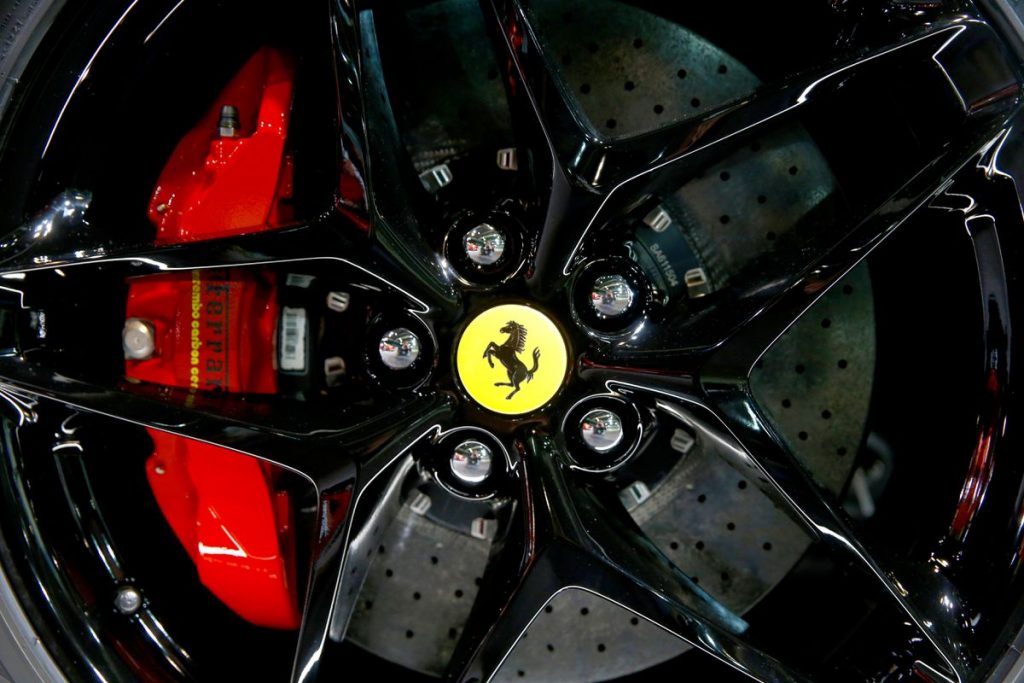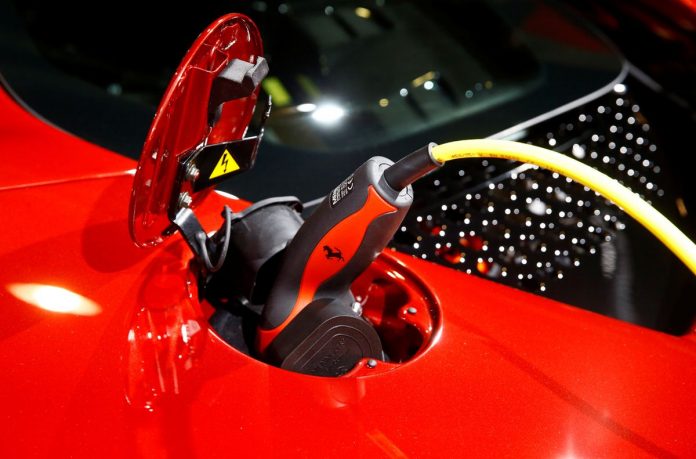Ferrari makes some of the fastest cars on the road, but the luxury Italian automaker is taking the slow lane to an electric future as it tries to overcome the technology’s disadvantages against today’s powerful fossil fuel engines.
At an investor day this month, executives promised a new era, with the first fully electric Ferrari in 2025.
But for now, combustion engines remain the noisy heart of what it does. Unlike some rivals, Ferrari has not provided a roadmap for going all electric. Volkswagen’s Bentley brand and Volvo are both targeting 2030.
According to a source familiar with Ferrari’s business plans, a new production line focused on electric vehicles (EVs) should help lift annual production at its plant in Maranello, Italy, by more than 35% to over 15,000 cars by 2025 versus 11,155 in 2021 – or 65 cars per day versus 46 currently – delivering higher profit margins in the process.
Ferrari declined to comment.
The carmaker has told investors it is targeting a core profit (EBITDA) margin of 38-40% in 2026, versus 35.9% in 2021.
Its line-up could also grow to at least 17 models by 2026 from 12 today. But most new models will, at least initially, have a combustion engine – including its first SUV, the Purosangue, powered by its trademark huge 12-cylinder engine – though some may be hybrids.
Ferrari currently has four plug-in hybrids in its line-up.


A zero-emission future poses the same challenges for Ferrari as it does for rivals – EV batteries weigh hundreds of kilograms, which affects aerodynamics and handling, and can’t match the sustained power and throaty roar of a massive combustion engine.
To solve those expensive challenges, Ferrari is researching solid state batteries, which could theoretically improve battery power, as well as hydrogen fuel cells and synthetic fuels, both of which face an uncertain future.
European Union countries agreed this week to an effective ban on new fossil-fuel car sales, but will assess in 2026 whether hybrid vehicles and synthetic, or CO2-neutral, fuels could comply with that goal.
“In every case where you have a technology transition, by definition you have a situation which is a little bit fuzzy, there is some fog,” Ferrari CEO Benedetto Vigna, a technology industry veteran who took over in September, told Reuters.
Jefferies analyst Philippe Houchois describes Ferrari’s approach as “measured”, but adds that may not be popular with investors as some automakers charge towards an electric future.
“They can run their profit center with combustion engines longer and amortize their investment there,” he said. “But it’s not necessarily what the market wants to hear because the mindset is let’s rush into EVs and never look back.”
























































![[FREE FREE MONEY] Predict and Win a Guaranteed GH¢200 From Us EVERY WEEK](https://wordpress.ghanatalksradio.com/wp-content/uploads/2022/02/Predict-and-Win-Final-09-03-2021-218x150.jpg)
![[Predict & Win – 8th/Oct.] WIN A Guaranteed ¢200 From Us This Week](https://wordpress.ghanatalksradio.com/wp-content/uploads/2021/10/maxresdefault-16-218x150.jpg)
![[Predict & Win – 2nd] WIN A Guaranteed ¢200 From Us This Week](https://wordpress.ghanatalksradio.com/wp-content/uploads/2021/09/maxresdefault-50-218x150.jpg)
![[Predict & Win – 25th] WIN A Guaranteed ¢200 From Us This Week](https://wordpress.ghanatalksradio.com/wp-content/uploads/2021/09/maxresdefault-36-218x150.jpg)
![[Predict & Win – 18th] WIN A Guaranteed ¢200 From Us This Week](https://wordpress.ghanatalksradio.com/wp-content/uploads/2021/09/maxresdefault-23-218x150.jpg)








![[National cathedral] See full list of churches that have contributed since 2018](https://wordpress.ghanatalksradio.com/wp-content/uploads/2020/09/Ghana-National-Cathedral-GhanaTalksRadio-100x70.jpg)



